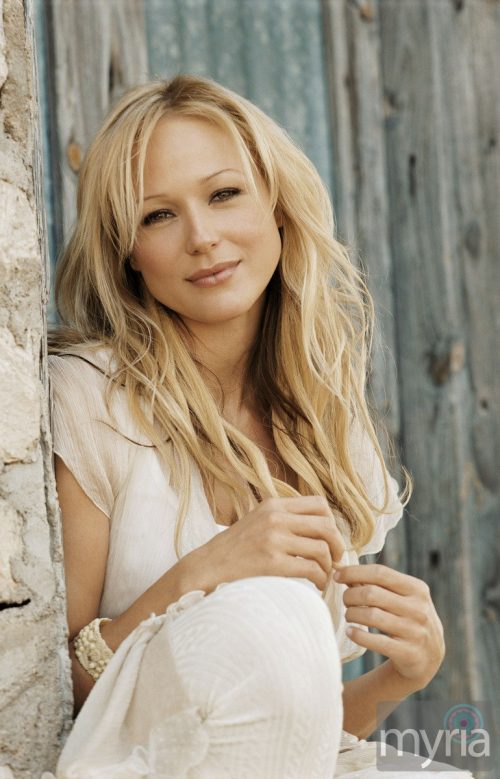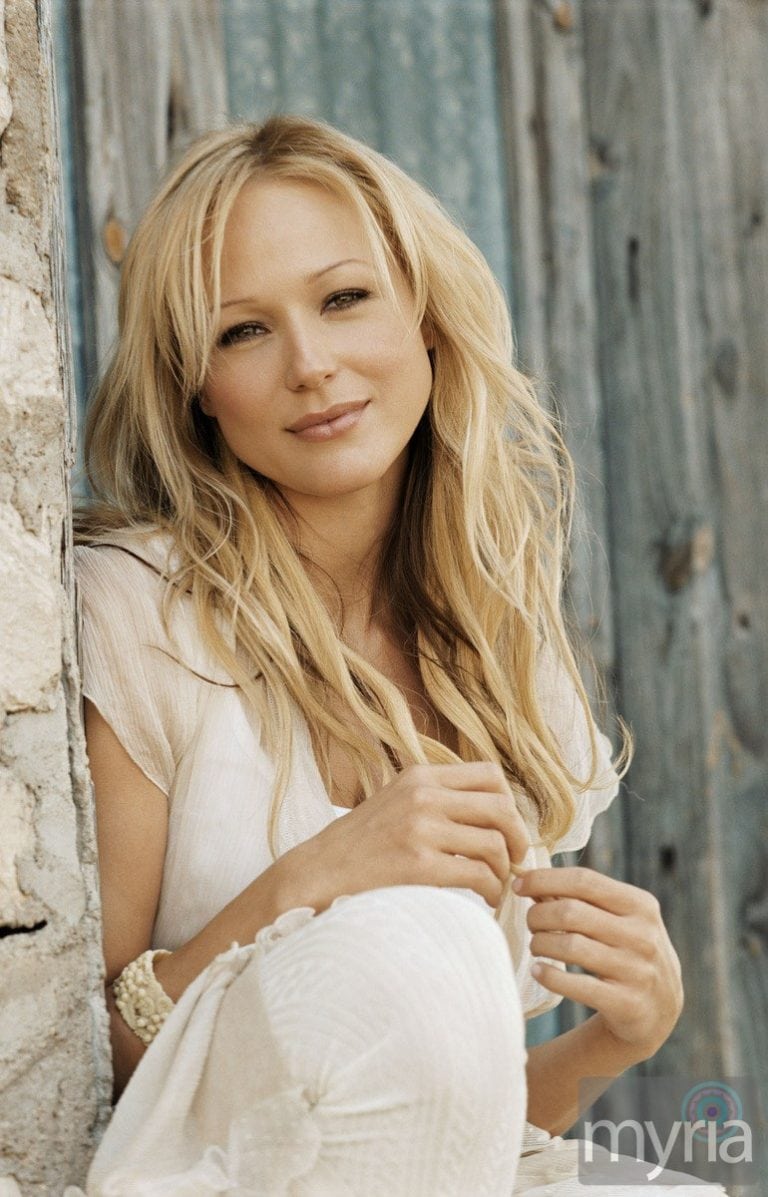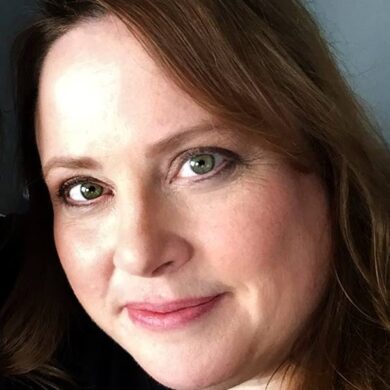Get a little insight into Jewel’s life & work in this 2006 interview
She was recently named one of People magazine’s “100 Most Beautiful” — but don’t let that distract you from the music.
Sure, her looks probably helped move more than a few of the 25 million albums she’s sold, but to this singer/songwriter (and poet, author and all-round artist), a pretty face is hardly what it’s all about.
by Nancy J Price
Born Jewel Kilcher in May 1974, the woman known to most of world simply as Jewel is once again setting off down her own path with the brand-new Goodbye Alice in Wonderland. While not a staggering departure from her body of work as a whole, its country-crossover feel is miles away from her last album, 0304. That disc’s poppy electronica- and irony-infused musical mélange caused fans worldwide to register a double take.

Much of her serenity comes from the fact that she is happily in love with Ty Murray, the (now-retired) nine-time Professional Rodeo Cowboys Association world champion. The longtime couple live together on his ranch in Stephenville, Texas. (The town’s name is not only the title of a song on the new album, but also where she filmed the video for the first single.)
We recently had the chance to chat with Jewel on topics ranging from her work ethic to the definition of art — and even touched upon the possibility of motherhood in her future.
As she talks, her words are deliberate and thoughtful, yet her manner doesn’t make her seem at all detached. Rather, she comes across as comfortable enough in her own skin to simultaneously evaluate her humanity as well as find the humor — and even a giggle — in her very unlikely lifestyle.
Our Jewel interview
Nancy: If you could go back to the eve of the release and tell yourself a thing or two, what advice would you give?
Jewel: You know it’s funny, having a record be a success. It’s harder than having lightning strike you. Making a great record is very difficult, but it’s the easiest part of the process, because then it enters a bureaucracy — and not just a bureaucracy, but a world of fashion and fad, and the modern fan can be quite capricious. So there are really an amazing amount of things that have to combine. I’d love to tell you that my first record’s success had solely to do with the talent of me, but it didn’t — I think it was a combination of what was going on in the world with what I was able to offer at that time. There are a lot of things that get involved.
The only comfort and insurance that I’ve been able to offer myself is that I’ve always tried as hard as I could. And then if something were to fail, I really felt honestly like I could sleep at night saying I exhausted every avenue open to me, and I never tried to cheat when I was writing — I’ve always given it everything I have. I tour extensively. That’s why I didn’t put out a record for three years: I know the commitment that it takes, and I’m not going to do it half-assed. I wasn’t going to put this record out until I felt like I had the guts and the sleep and the rest built up to really work it, because that’s what it takes.
So in a roundabout way of answering your question, I guess, I’ve told myself the same thing with every record, and I continue to tell myself it — which is just, “Work your ass off, and do your best work.”
NJP: I know that you scrapped the first version of this new album, and reworked it with Rob Cavallo [who also has produced major albums for Green Day and Goo Goo Dolls, among others]. Did you have a lot of sleepless nights thinking, “Should I start over again?” and questioning yourself, or was it pretty easy to realize it just wasn’t right?
Jewel: It was kind of a natural process. Making my own recording was a little bit more of a torture. I ended up just going into the studio by myself out of desperation because I couldn’t find a producer, but I really found the process really rewarding — I felt that I made a pretty good record. It might not have been a hit record, but I really was able to live with it because I felt like it was really honest, and I didn’t do an injustice — I didn’t ruin it. I guess it might not have been a hit.
Then I ended up meeting Rob, and it was like the best of both worlds: I didn’t have to compromise anything, and I felt like I had a shot at getting my record label interested in it and getting behind it and helping me push and helping the world hear it, instead of a hundred thousand fans. So it ended up being a win-win. It was pretty natural by the time I got to Rob, because it was so obvious that he understood what I was trying to accomplish.
NJP: How do you feel your singing and songwriting has improved over the years –- do you feel like you’re stronger now, more willing to take risks?
Jewel: It’s interesting — I’ve always hoped to try and have a relevant writing career, not necessarily just for sales, but I think a lot of writers tend to write less relevantly over a long period of time, whether it’s due to complacency or lack of curiosity or you’re just less hungry in a way. I think when you’re young, there’s a lack of craft but an abundance of emotion and rawness, and I think people in general tend to look and feed off of not perfection but emotions.
As you grow older as a writer, I think your desire to get good at the craft can sometimes overwhelm the emotions. So you have a lot of very gifted, crafted, perfect writers that aren’t very interesting. And that’s sort of the trap. I’ve tried to look back at my writing, and I can kind of see in it a real lack of structure but a real gift of… I don’t know what a good word would be… balls, kind of. I’ve tried to keep that rawness available and just use the craft where it’s necessary, but also grow it — the craft — at the same time. And that’s a fine line to walk.
NJP: How do you keep the passion alive in your writing?
Jewel: I think it’s a lot of very specific choices that you make. I guess it comes first with the desire. After that, I think it’s very specific physical things that you implement. I’ve really found that a lack of curiosity is dangerous, and complacency. Unfortunately, fame just lends itself to killing both of those things — a bunch of people kissing your ass telling you how great you are, and you believe it. And you have a lot of distractions around you — a social life and all the stuff suddenly that’s available to you. I think you quit struggling in a way that’s really vital.
I kind of knew that — oddly, I don’t know why — I just really wanted to be a good writer my whole life, I really didn’t want it to be for a short period of time. I was actually quite worried to do well, ’cause I was worried about how it would affect my writing. I’ve never lived in Hollywood, I live on a ranch now in Texas — I’ve really detached myself. I’ve tried never to have people around me that talk about my writing, I don’t read reviews on myself, I certainly don’t have any people around me that are like, “You’re great, kid.”
I’ve also personally — unfortunately — never stopped trying to figure out how I can be better, which I guess makes my life a struggle, but in some ways I think it’s kept me honest. I’ve kept striving to get better. I think through those series of choices you keep pushing yourself. I also read so many great writers you can’t help but have humility, because at the end of the day, I’m a fricking pop song writer, and it doesn’t stack up to a lot of the writing that I really admire.
NJP: Sounds like you can be pretty hard on yourself…
Am I hypercritical? Definitely. Do I hold myself up to an unrealistic standard? Mostly, yes, sure. Can it be crippling? Sure. And when it is, you have to take stock of yourself and be an adult and change it.
NJP: You’ve been a singer, a songwriter, and a poet and photographer — you’ve even done some acting. What are some of your other creative hobbies and interests?
Jewel: The thing I’m most excited about right now is that I’m starting to do a pilot called Punk Rock Angel Girl. It’s a cartoon for Nickelodeon. And I drew it and conceived it, did the voice, made the whole world, and that’s been a tremendous amount of fun. It’s been really a thrill.
SK: Do you feel you have a fear of failing, or do you just have faith in yourself and the ability to just plunge into anything?
Jewel: It’s funny, because I experience life on kind of two levels — on the one level, I’m quite brave; and on another level, I’m quite cowardly. Emotionally, as a writer, I’ve always felt like telling the truth isn’t a very big risk. I guess other people perceive it to be a big risk, but for me, I always felt like it was the safest place you could be. I felt like fewer wrecks happen the quicker you can come to terms with things, and I guess I’ve finally adopted quite a brutal attitude toward trying and struggling to seek truth about myself and things. I’ve always felt writing to be such a kind witness — you can say the ugliest things about yourself, and when they’re on the page, in ink, there’s sort of a benevolence that happens where you feel like you’re just human, but you’re not alone.
And I think it’s that feeling of not feeling alone that was always so comforting. I always wanted to do that for other people, like when I read Anaïs Nin’s journals. God, she’d say terrible things about herself! I mean, she cheated on her husband, and she was kind of terrible — but somehow her honesty was so disarming that you really were pulling for her. You just saw that it was human, it was just the struggle, and that nobody’s perfect, and you forgave her at the same time as you tried maybe not to be like her necessarily.
So it was really a gift for me, even though I was a little kid that had nothing to do with adultery as a 13-year-old in Homer, Alaska — but it made me feel less alone, and writing made me feel less alone, and it’s something I wanted never to do: I never wanted to lie in my writing — for myself as well as for anybody that might read it.
NJP: You sound very self-aware. Do you feel pressure to do anything like a “typical” woman in her thirties would do — settle down, start a family — or is that not even on your radar right now?
Jewel: Not yet. Getting there. But not out of pressure, I don’t think. Art is a really interesting endeavor, and the definition of art keeps opening up — from it being about words, to being about melody with words, to being about arrangement with melody with words, to being about other art forms: acting, poetry, whatever. And then it started to become love to me, I started to approach my relationship like it was a song, and that became art to me. You know, where the struggle and even the fights were like, “This is an interesting verse. How am I going to write this verse?” And kind of creatively bringing myself to it artistically as kind of a challenge. It was interesting. I feel like if I have kids, that will be because — I guess I sound selfish, but I hope not — it’ll be because I’ve become a bit bored with music and I want to creatively tackle my life to be my artwork, and not just my music.
NJP: And what are the best things about your career?
Jewel: You know, I cannot believe I’m lucky enough to make a living doing something I enjoy — you know, the tedium of doing a job where your heart isn’t in it is insufferable. My heart really goes out to people who are doing something that they don’t enjoy — they’re doing it to get by. It’s a really deadening experience, and I really can’t believe I’m so lucky to do something that engages me and makes me feel alive and enjoy my life and make me wake up looking forward to it.
I didn’t think it’d ever work out this good for me. I thought I’d always answer phones or do some sh*t work. Not that answering phones is the sh*t work, it’s just that it did nothing for me. I was a writer.
I think that’s one thing, as well as — you know, those people that say money doesn’t solve all your problems? That’s true — but it helps with a lot of the problems. Worrying about how you’re going to get your medication and your prescriptions filled, and where you’re going to live, and how you’re going to pay your rent — that’s a fricking life-shortener. Money really can help. It doesn’t solve emotional unhappiness, but it lets you at least get to solving it.
NJP: So what are you most grateful for right now in your life?
Jewel: I think writing’s been my biggest gift — I think it’s really saved me, and kept me from doing drugs and a lot of other things probably. And it’s also given me a living, and it’s been the ultimate fish that has provided me with its bounty. And I think love has helped me a lot — and my boyfriend. Love has been able to settle me and soothe me in ways that were really necessary.
This interview originally appeared on SheKnows.com in 2006









